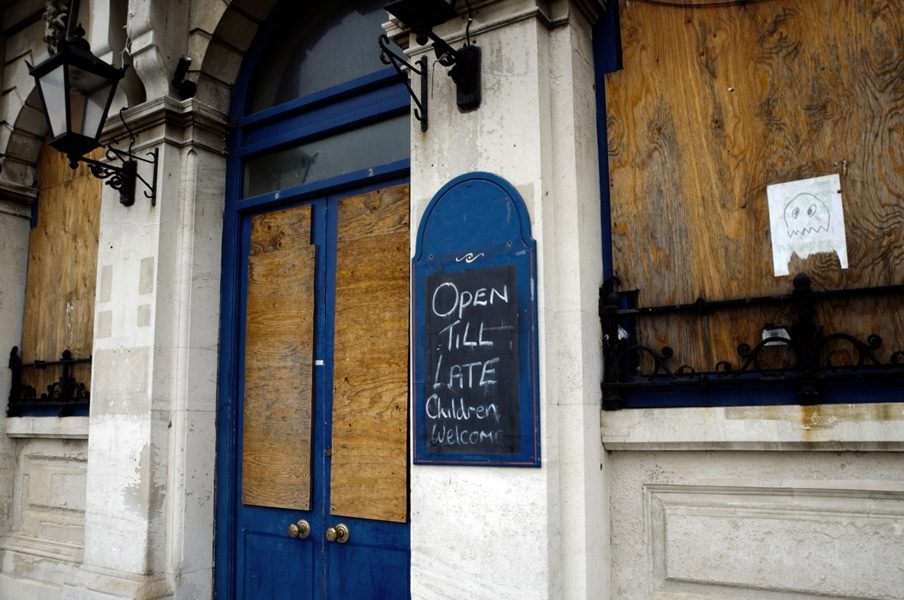The decline of the British and Irish pub regularly makes the headlines. Whether it’s a fall in pub numbers or local coverage of a much-loved pub facing re-development, the decline of the pub seems to be an accepted fact.
However, while trade bodies and drinkers’ campaign groups will frequently offer their explanations for the decline, from taxation to regulations, the bald figures hide a more nuanced change to the two countries’ pubs.
A brief history of the pub
The pub traces its origins to the Roman occupation of parts of Britain. They brought taberna, which sprung up by popular roads selling wine before quickly adapting to sell the preferred local drink of ale. When the Romans left, the taberna stayed and evolved, spreading over the British Isles to become the modern pub.
Ireland, never subjected to Roman rule, gained the pub some time afterwards, perhaps as late as the tenth century. Selling alcohol and acting as a focal point for the local community, Irish pubs frequently served other functions. Even well into the 20th century, Irish pubs would be the local grocers, and it was not uncommon for the cool cellar to double as an undertaker’s chapel of rest.
The decline of pubs
The number of pubs in both countries has fallen for decades. The UK’s Office of National Statistics (ONS) reported that between 2008 and 2018, almost a quarter of pubs closed. The Drinks Industry Group of Ireland said that for a similar period, 2005 to 2018, nearly a fifth of pubs in Ireland had closed.
Although those involved in the industry suggest specific causes, the long-term nature of the trend indicates that there is no single factor behind the decline. And it might not be a modern phenomenon: while the ONS found one pub for every 900 people in 1990, there was one pub for every 187 people in the sixteenth century!
What are the possible causes for the decline?
Taxes
In both Britain and Ireland, alcohol duties are high. In the UK, duties are based on the price and strength of the drink, but a typical drinker can expect about one-third of the cost to be paying the taxman, not buying beer. Research by CAMRA found that over half of Britons considered the price of a pint unaffordable.
A uniquely British problem is business rates. These are levied on the value of the property rather than business activity. This has meant that many businesses cannot meet bills, especially in areas that have seen significant increases in property values.
The smoking ban
Both countries have banned smoking in indoor public buildings, and many suggest this was a death knell for some pubs. Many pubs have thrived, becoming more inclusive venues and indeed more appetizing places to eat. But traditional ‘wet’ pubs, which only serve alcohol, have suffered, and many publicans report that when the smoking ban started, customers opted to drink and smoke at home.
Competition
In both countries changing retail habits have created competition. The increasing size of supermarkets, accompanied by their buying power, makes it much cheaper to buy alcohol from them than the local pub. While in the south-eastern parts of the UK, the ‘booze cruise,’ a day trip to a French supermarket, was the most cost-effective way to buy alcohol.
Changes in behaviour
Changes in consumer behaviour might be the leading cause of the decline in pubs. For many, the pub is no longer the community’s social hub, and alternative forms of entertainment have taken over. Tastes have also changed, younger people are drinking less, and the Irish Times has reported that alcohol consumption in Ireland has been falling.
Covid-19
The pub sector has also been hit hard by Covid-19. Each nation closed pubs for a period. When reopened, restrictions like enforced table service, a requirement to have a meal, outdoor-only drinking, and group sizes all limited the return of customers.
For many pubs whose main attraction is for people to get together with others, the restrictions have been devastating.
Is there any good news?
The overall decline in pub numbers is indisputable. However, more detailed figures show that the decline is not uniform across the pub sector, and there are some positives.
Overall spending in both Great Britain and Ireland has remained stable in recent years. There may be fewer pubs, and people are drinking less, but they are spending just as much as ever, perhaps reflecting a trend to favour quality over quantity, even at a higher price.
There has also been a growth in independent pubs. Research by the House of Commons library found pub operating company closures drove the fall in pub numbers. However, since 2008 the number of pubs run by breweries has mostly remained stable, while independent pub numbers have grown.
There have also been regional variations. Tourist areas tend to see fewer closures. In Ireland, where nearly one-fifth of pubs closed nationwide between 2005 and 2018, in Dublin, a major tourist destination, only one-in-a-hundred pubs closed. London has the fewest pubs per head of population than any other part of the UK, but the tourism-friendly centre has about the country’s highest density of pubs per square mile.
What next for pubs?
The trend has been consistent. The House of Commons research highlights that, except for a few years in the late 90s, each year has seen closures. However, other trends suggest pubs remain popular. Overall spending has remained constant, and employment in pubs has increased.
This might reflect the social function pubs serve. Researchers at Oxford have suggested that social drinking can have a positive effect on wellbeing and play an essential role in community engagement. The Plunkett Foundation has highlighted the growth in community-owned pubs, where people jointly own and operate their local, noting that no community pub had failed at the time of their report.
The question, therefore, is whether the decline of pubs is an irreversible trend or just a gradual adjustment of the sector to meet cultural and social changes. But after 2,000 years, it seems unlikely that last orders will be called on pubs any time soon.
Like what we have to say? Sign up to subscribe to email alerts and you’ll never miss a post.










